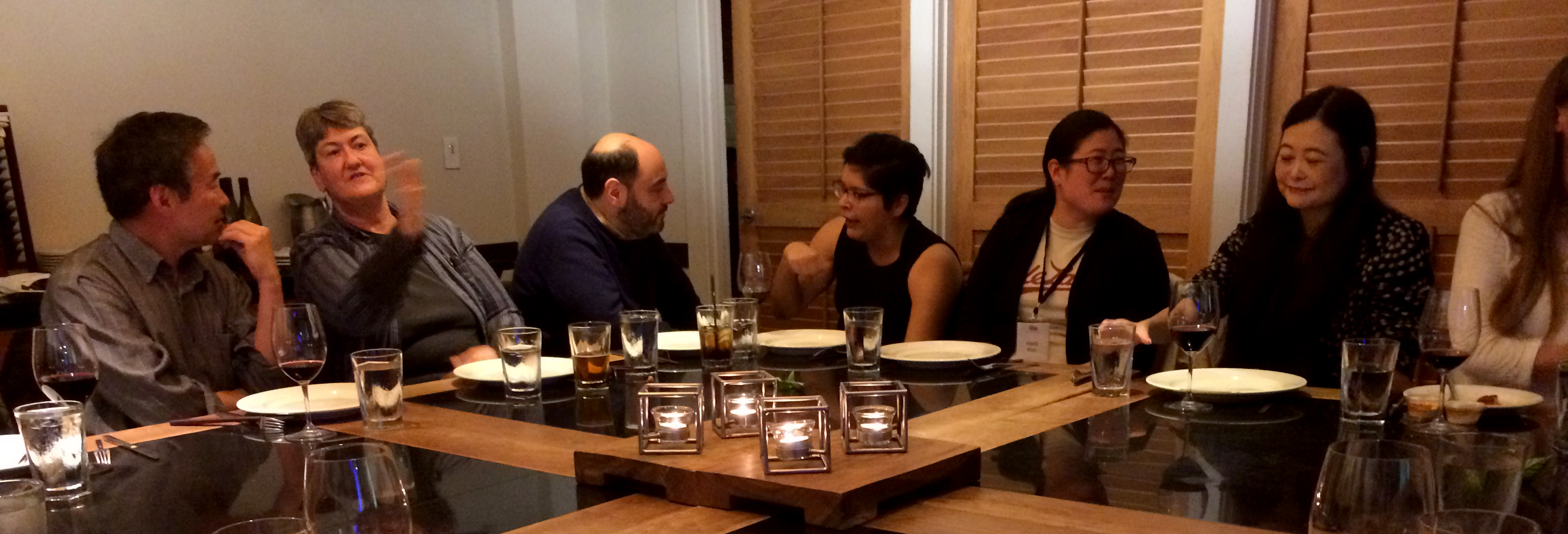October 25, 2016
Densho’s First Annual Scholars Roundtable stemmed from a conversation that Eric Muller initiated with Densho executive director Tom Ikeda and me earlier this year. Eric, a legal scholar who has written extensively on the incarceration, told us that he didn’t feel he had a space to talk about the state of scholarship on the wartime incarceration of Japanese Americans with other scholars working on the topic or to get knowledgeable feedback on his work in a face-to-face setting. He asked us if Densho would be willing to host a “Scholars Roundtable,” in which a group of scholars specializing in the incarceration story might be brought together to do just that. He also told us he had the funding to allow such a meeting. Tom and I both jumped at the opportunity.
Densho has long relied on the community of scholars to inform much of what it does. Local scholars like Tetsuden Kashima, Gail Nomura, and Steven Sumida helped Tom shape Densho in its early days. Roger Daniels—perhaps the most notable incarceration historian of his generation—has been a close friend and advisor to Tom. I have spent much of my career with one foot in the academic world and one in the public history world and welcomed the opportunity to convene with some of the leading figures in current incarceration scholarship. Working with Eric, we put together a list of invitees and planned to bring them to Seattle.
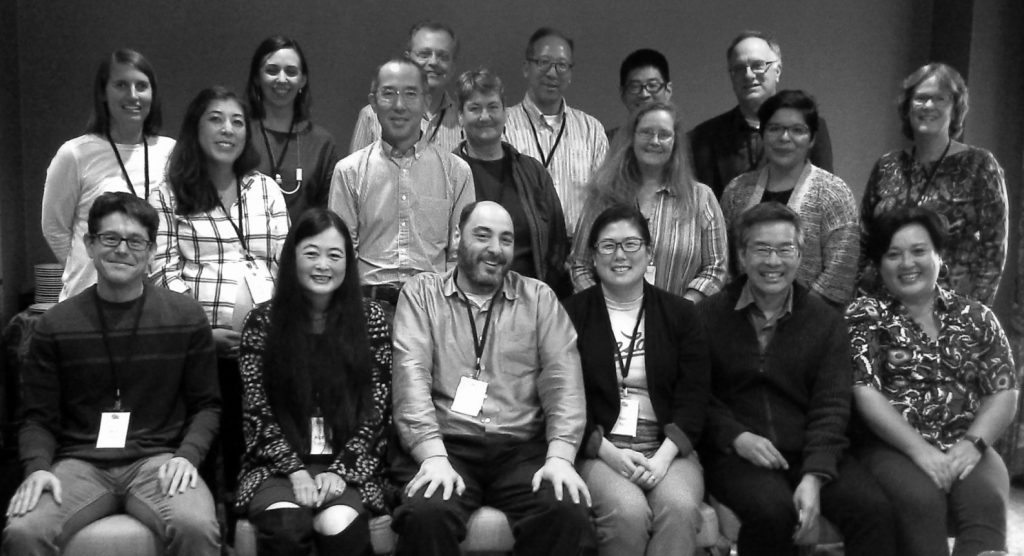
We decided to focus on mid-career scholars who are doing current work specifically on aspects of the incarceration: those who had already published a book or two and, for the most part, have senior positions at their universities. Given the limits of our funding, we didn’t invite either the older generation of scholars, who have retired from academia nor relative newcomers to the field. Keeping in mind regional and gender diversity, we settled on the following list of invitees: Karen Inouye of the University of Indiana, Heidi Kim of the University of North Carolina, Lon Kurashige of the University of Southern California, Greg Robinson of l’Université du Québec À Montréal, and Alice Yang of the University of California Santa Cruz. Together with Eric, this illustrious group has produced some of the most notable incarceration scholarship of the past twenty or so years.
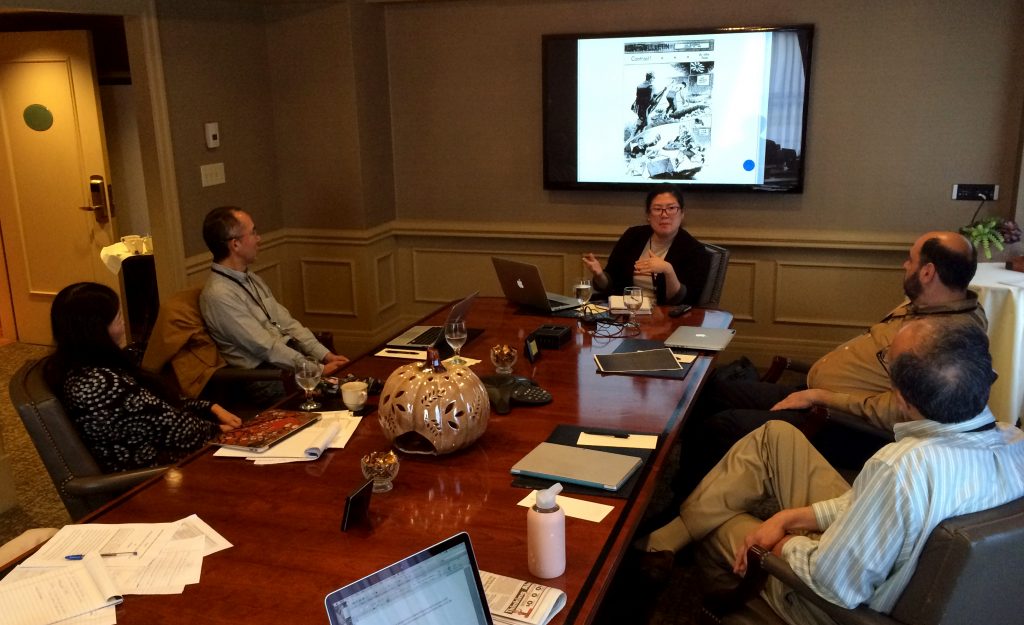
Densho is concurrently engaged in a Japanese American Confinement Sites grant funded project* that has as one of its goals to produce a topic thesaurus of Japanese American terms in collaboration with archivists, collections managers, and librarians. The idea is to produce something that many, if not all, institutions with Japanese American incarceration history collections will adopt, thereby improving our ability to search across institutions. As part of this project, we had funding to gather archivists from different institutions to work together on the thesaurus. Given that these two groups—the scholars and the archivists—often do work that informs the other, we thought it would be a good idea to have these two gatherings at the same time and to build in time for the groups to intermingle and exchange ideas. And so it was this past weekend, as scholars, archivists, and Densho staff came together in Seattle.
I can only speak about the scholars’ meeting, but I think it is safe to say that all thought it worthwhile, for the exact reasons Eric spoke to in proposing the roundtable. The gathering included presentations and discussions of participating scholars’ current research. We also had freewheeling discussions about the state of the field—and whether it was a “field” at all—that touched on topics such as terminology, the politics of outing the community’s dirty laundry, the larger topic of our responsibility/engagement with the community, the meaning of the passing of the Nisei generation, and various other topics.
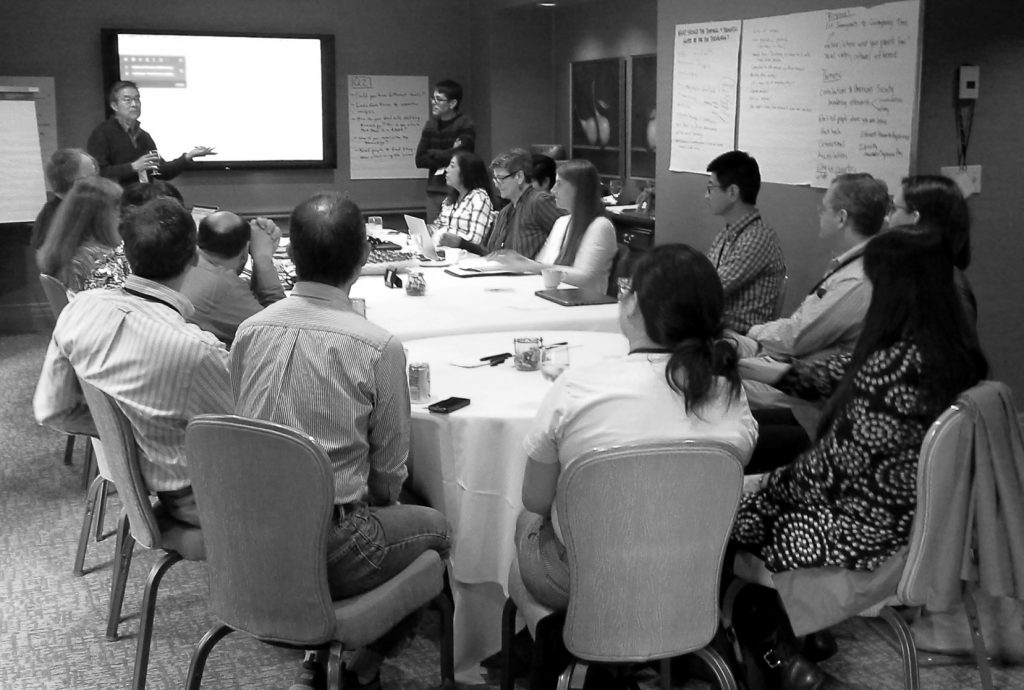
It was also an opportunity for many of us to see old friends and colleagues, and to meet people whose work we admired. (I was surprised to find, for instance, that Robinson and Yang had never met.) In between, we met with the archivist group and provided feedback on each other’s work. As is the case at academic conferences, the informal meetings over meals and between sessions were often as valuable as the formal sessions and were an opportunity to talk about specific Densho projects and ideas for future collaborations.
The roundtable also had the effect of validating the work that each of us is doing. I know that many of us work more or less in isolation and don’t have colleagues with whom we can discuss our work. The discussions we had were energizing, and I return to work with a renewed sense of purpose. I’m certain that others feel the same way.
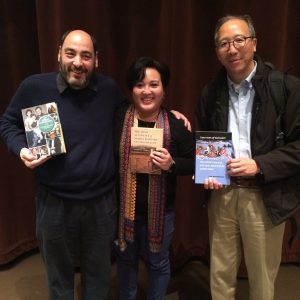
While there was no official public portion of the meetings, Densho organized a related event on Sunday. It turned out that three of the scholars—Inouye, Kurashige, and Robinson—have new books that came out in the last month or two. (This is actually quite remarkable, given that there are relatively few scholarly books on Japanese Americans released in any given year.) In collaboration with the Seattle Public Library and Elliott Bay Book Company, we hosted a program titled “Lessons from World War II: Enduring Legacies of Japanese America Incarceration.”
Each author talked about their new books—Kurashige’s Two Faces of Exclusion: The Untold History of Anti-Asian Racism in the United States (University of North Carolina Press), Inouye’s The Long Afterlife of Nikkei Wartime Incarceration (Stanford University Press), and Robinson’s The Great Unknown: Japanese American Sketches (University Press of Colorado)—after which I led a panel discussion about the meaning of the Japanese American incarceration with relation to current events. Thanks to an engaged crowd of about 150, the event ended with a lively question/answer session and book signing.
We hope to be able to host Scholar Roundtables on a regular basis with differing groups of scholars, perhaps as often as annually, as a way to encourage scholarship and expand the boundaries of the field. In the meantime, we thank Eric Muller, the Mayflower Park Hotel, Karen Maeda Allman of the Elliott Bay Book Company, Linda Johns and Carl Kaproth of the Seattle Public Library, the visiting scholars and archivists, and Densho’s hardworking staff for a stimulating weekend.
—
By Densho Content Director Brian Niiya
*The thesaurus project is funded, in part, by a grant from the Department of the Interior, National Park Service, Japanese American Confinement Sites Grant Program.
[Header photo: At dinner on the final evening of the Scholars Roundtable, from left, Tom Ikeda, Sue Tyson, Greg Robinson, Summer Espinoza, Heidi Kim, and Alice Yang.]
